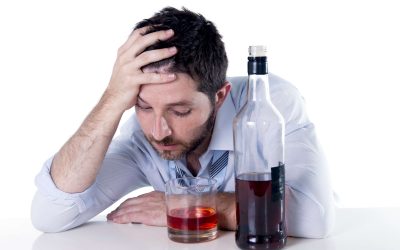Contents
These medications are intended to treat blood clots in people who have them or reduce the risk of them forming. Blood thinners do not actually reduce the size of existing clots, but they can enhance the body’s natural process for eliminating unhealthy blood clots. Yes,alcohol increases heart rateas well as raise blood pressure during the initial stages of intoxication. As a result, heavy drinking increases the risk of experience cardiovascular-related diseases such as heart attack and stroke.
When it comes to the health of your blood vessels, have a conversation with your doctor. But in people who drink heavily, there can be a rebound effect in which the bleeding risk increases, even after they’ve stopped the signs of a high functioning alcoholic drinking. Exceeding the recommended guidelines above is considered heavy drinking. But having more than three alcoholic drinks daily could increase your risk for a type of stroke caused by bleeding in the brain .
Alcohol, in low to moderate amounts, thins the blood, reducing the risk of clots. But moderation is key – and doctors don’t recommend drinking alcohol to protect against DVT. No material on this site, whether from our doctors or the community, is a substitute for seeking personalized professional medical advice, diagnosis or treatment. Never disregard advice from a qualified healthcare professional or delay seeking advice because of something you read on this website. The combined effects of blood thinner medications and alcohol are dangerous because they can cause excessive bruising and bleeding. Internal bleeding is the most dangerous because it is more difficult to detect.
Talk to Your Doctor
This means that it stops blood cells from sticking together and forming clumps. Alcohol can thin your blood or enhance the effects of blood thinners. Dr. Harb Harb is a non-invasive cardiologist working within the Northwell Health System in New York, specifically the interactive association between sodium intake at the North Shore University Hospital, affiliated with Hofstra University. Dr. Harb moved to New York City, choosing a career path in academic medicine as an assistant professor at the Donald and Barbara Zucker School of Medicine at Hofstra/Northwell.
Avoiding the combination of blood thinners and alcohol is much more difficult for those addicted to alcohol. Even though it could be harmful, people who struggle with alcohol abuse may find themselves combining alcohol and blood thinners even though they know they shouldn’t. Alcohol and blood thinners interact in different ways that will vary for each individual. This makes it hard to predict exactly what will happen, but it increases the risk of either bleeding or clot-related problems. Alcohol can also increase the risk of injuries, which can bleed more easily while someone is on blood thinners. If you have high blood pressure, drinking many days in a row or drinking a lot in one setting are both very dangerous and can even be deadly.

However, people who use blood thinners regularly for a health condition or have a bleeding disorder may be at anincreased risk of excessive bleedingin general and should avoid alcohol. Drinking alcohol in moderation may have a protective effect on your blood vessels. Some research finds that alcohol increases levels of high-density lipoproteins (HDL, aka “good cholesterol”). This healthy type of cholesterol helps protect your arteries and prevent the blood clots that can lead to heart attacks and strokes.
Can You Drink Alcohol on Blood Thinners?
Doing this can increase the risk of severe bleeding during an accident or after an injury. Mixing alcohol and Coumadinis known to affect how Coumadin works in your body. It can make Coumadin more active and increase the risk of bleeding. It can also affect your blood levels and cause incorrect doses of Coumadin to be prescribed. You should avoid mixing Coumadin and alcohol unless your doctor says that it is OK. As we mentioned earlier, thin blood can increase your risk of excessive bleeding and stroke.
The National Institute on Alcohol Abuse and Alcoholism and the National Institute of Health are both trusted sources you can access to get help for yourself or a loved one. A combination of medical advice from a health care provider, social, and family support is also essential. These drugs work by blocking the clotting process in the blood.
Researchers also found decreased rates of coronary artery disease and non-fatal stroke among people who drank alcohol compared to those who didn’t. It can also limit your kidneys’ ability to excrete broken-down toxins or drugs, such as your prescribed blood thinner. This can lead to the same harmful effect of excessive anticoagulation. The scientists found that men and women did not show different responses. Nor did the type of beverage consumed—wine, beer or spirits—appear to make a consistent difference in platelet activation.

Someone who wants to drink alcohol while taking blood thinners should consult with their doctor before doing so. While some people may be able to drink in moderation while taking blood thinners, it is typically best to avoid it. Alcohol is generally not an essential activity, and it can increase the risk of bleeding, so it is typically best to avoid drinking while on blood thinners.
Wine Spectator
We want to give recovering addicts the tools to return to the outside world completely substance-free and successful. Your healthcare provider also prescribes you the correct dosage for you depending on a number of factors. The effects of alcohol may be similar to blood thinners, but you should not replace your medication with alcohol. Beyond your blood platelets,abusing alcohol can significantly harm your health, including liver damage, high blood pressure, nerve damage and depression.
- However, it’s worth noting that thinning the blood may increase your risk of a different kind of stroke called a hemorrhagic stroke.
- Binge and heavy drinking may cause a stroke or sudden cardiac death as well.
- If you have thin blood, you may hemorrhage more blood before it’s able to clot.
- When you get hurt, blood cells called platelets gather at the injury site and form a blood clot.
- If you or someone you care about is displaying signs of alcohol addiction, our substance abuse treatment center in Stuart, FL, is here to help.
If you have thin blood, you may hemorrhage more blood before it’s able to clot. In cases where alcohol or blood thinners are used in excess, ruptures can cause a stroke because not enough blood makes it to the brain. In fact, a BMC study found that the anticoagulant effects of moderate alcohol use could reduce your risk of ischemic stroke.
It can make your blood too thin and lead to hemorrhages, stroke, and if not treated, death. Moderate drinking may be able to lower the nutritional therapy for alcohol use disorder risk of clotting but it only does so for a short period of time. Moderate amounts of alcohol act as an anticoagulant in the blood.
prescription drugs you should not drink alcohol with
Red wine is fermented for a longer amount of time with the grape skins than white wine is, meaning it will contain more resveratrol, which is why it is typically thought to be more heart healthy. If you’re taking any medication, it’s wise to be careful about alcohol consumption. Many different medications can have potentially dangerous effects when they’re mixed. However, since blood thinners and alcohol can both act as anticoagulants, it’s possible to cause them to potentiate, leading to bleeding complications or low blood pressure. Light to moderate alcohol use can make your blood thinner, while heavy alcohol use actually increases the likelihood of forming blood clots.
What else thins your blood and increases your risk of bleeding? Although it’s usually recommended that you do not drink alcohol on blood thinners, the safest thing for you to do is to ask your doctor if it’s safe. Both alcohol and blood thinners like Coumadin can thin your blood, so taking them together may increase their anticoagulant effects to the point where it increases your risk of hemorrhaging or bleeding. However, this lack of blood clotting caused by alcohol could also potentially increase your risk for hemorrhagic strokes or strokes that occur when weak blood vessels burst. The risk of “bleeds” or bleeding strokes also increases as a result of heavy alcohol use.
Alcohol is mostly broken down in the liver, which serves to filter out toxins from the blood. Alcohol can stimulate the liver to then increase production of HDL (high-density lipoprotein cholesterol), which can then work to break down LDL (low-density lipoprotein cholesterol). HDL is considered “good” cholesterol while LDL is classified as “bad” cholesterol, a buildup of which can be a contributing factor in a heart attack. So, in a sense, alcohol can help to create a healthy balance of good cholesterol versus bad cholesterol, further lowering the odds for a heart attack or stroke. We are dedicated to transforming the despair of addiction into a purposeful life of confidence, self-respect and happiness.
Alcohol should never be used as a substitute for blood thinner medications. So, could someone like Kendra just use alcohol to thin their blood, instead of taking prescribed blood thinners? The platelets make your blood clot, so bleeding stops when you suffer an injury. The platelets in Lily’s body immediately get to work clotting the blood to stop the bleeding. After a couple of minutes, Lily’s hand still hurts, but at least the bleeding has stopped. Ark Behavioral Health offers 100% confidential substance abuse assessment and treatment placement tailored to your individual needs.
Anticoagulants, also described as blood thinners, are a group of drugs that reduce the ability of blood to clot. One of the functions of your liver is to break down alcohol and some medications. If your liver is busy working hard removing the alcohol instead of your blood thinner, the level of the drug in your blood will go up and raise your bleeding risk.
Increasing the level of blood thinners in the body can lead to an increased risk of bleeding. People normally take blood thinners when they have conditions that increase their risk of blood clots developing or conditions that increase the damage a blood clot would potentially cause. Thiscould includeatrial fibrillation, a heart valve replacement, congenital heart defects and many other conditions.
